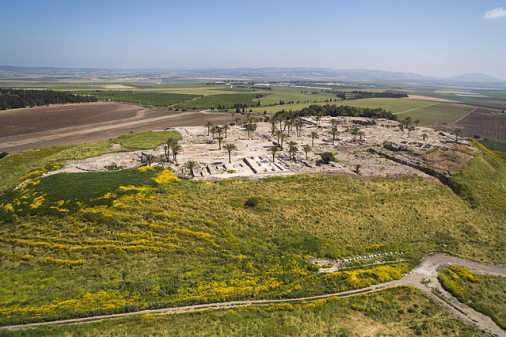Archaeological Discoveries Shed Light on Biblical Battle of Megiddo

Wikimedia Commons/israeltourism
Recent archaeological findings have unveiled compelling evidence supporting the biblical narrative of the Battle of Megiddo. The site, which captures a significant historical event mentioned in the books of 2 Kings and 2 Chronicles, marks the demise of King Josiah, a king revered for his devoutness and mentioned in the New Testament as an ancestor of Jesus.
King Josiah is celebrated in scripture for his fervent efforts to redirect Israel from idolatry towards the worship of the Lord. His dedication to religious observance is highlighted by his encouragement of Passover celebrations, noted in 2 Kings 23:22: “Surely there was not holden such a passover from the days of the judges that judged Israel, nor in all the days of the kings of Israel, nor of the kings of Judah.”
Despite his religious reforms, Josiah’s reign met a tragic end. The Old Testament recounts that Pharaoh Necho of Egypt advanced with his army to confront Charchemish by the Euphrates, prompting Josiah to engage him in battle. Against Necho’s warnings of non-aggression towards Josiah, the king proceeded to oppose him, ultimately resulting in his death from an archer’s arrow.
2 Kings offers a poignant epitaph for Josiah: “And like unto him was there no king before him, that turned to the Lord with all his heart, and with all his soul, and with all his might, according to all the law of Moses; neither after him arose there any like him.”
The recent discovery of pottery fragments in the Megiddo area by archaeologists now suggests an Egyptian presence during the time of the battle in 609 BC. Israel Finkelstein, a leading archaeologist from the University of Haifa and Tel Aviv University, shared with Live Science that, in addition to Egyptian pottery, Greek pottery remnants were also uncovered. These findings likely indicate the employment of Greek mercenaries by the Egyptians at the time.
This article was originally written by www.christiantoday.com






